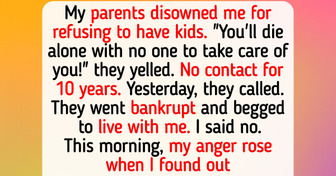Well there's your problem. Why did you not tell her why she was moved to your team? She needed to be made aware that her performance was not up to par and she's under the microscope and should work like she knows it
I Tried to Save My Friend’s Job, but She Got Fired and Blames Me
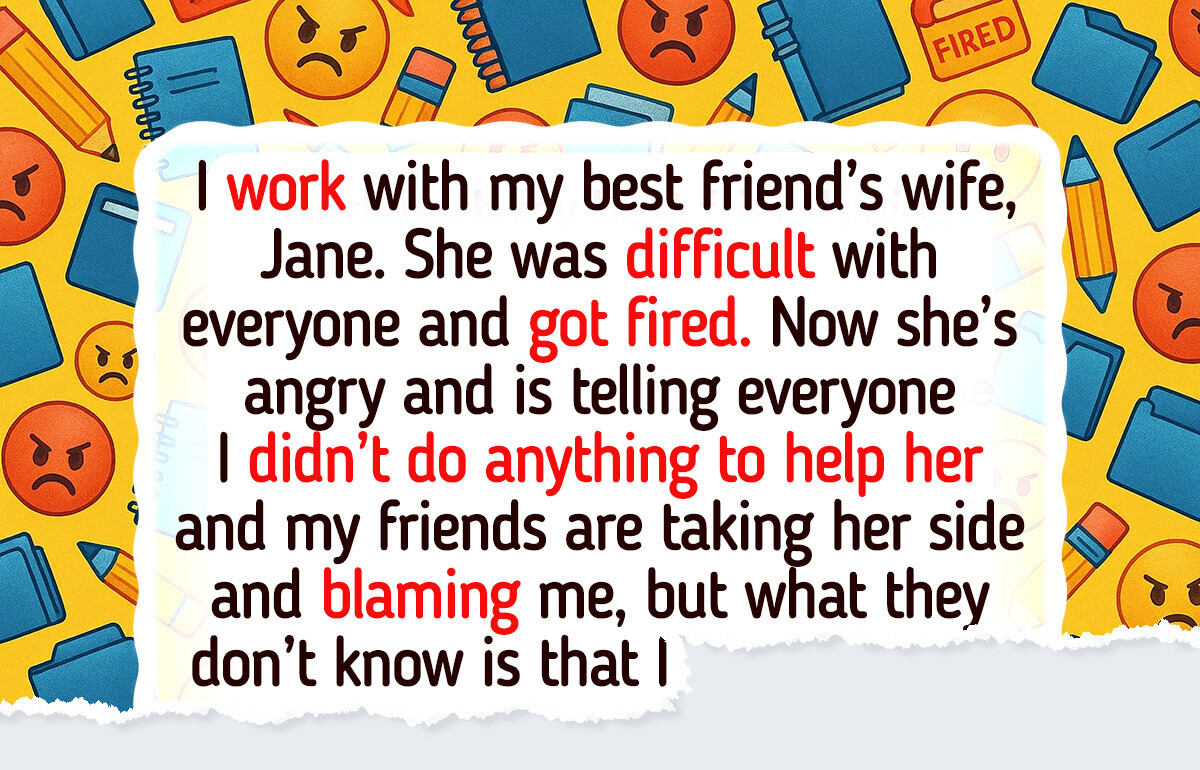
Navigating friendships that involve working with someone close, especially your best friend’s partner, can get complicated fast. The lines between personal loyalty and professional responsibility blur, and even with good intentions, things can go sideways. When emotions, jobs, and relationships mix, it’s easy for misunderstandings to feel like betrayals.
Work and friendship.
I worked with my best friend’s wife, Jane. Honestly, she was kind of a nightmare at work, always gossiping, picking fights, being rude to everyone. She was on the verge of getting fired, so I moved her to my team to try and help her out.
I thought maybe she’d chill and take the second chance seriously, but nope, things got even worse, and she got fired anyway.
When help backfires.
The other night, our whole friend group met up at a café, and the vibe was super tense. Jane was clearly still mad and started telling everyone that I didn’t do anything to help her. My best friend totally took her side.
What they don’t know is that I was aware she was about to be let go, that’s actually why I moved her to my team in the first place. I was just trying to give her another shot, hoping things would turn around.
Good intentions, bad timing.
So I finally decided to speak up and clear the air, maybe calm her down a bit. But she got even more upset. She said, “Why didn’t you just tell me from the start? I could’ve fixed myself before they fired me!”
And then my friend chimed in with, “You should’ve just been honest with her. Especially now, we really need the money. She’s pregnant.”
I feel so awful. Maybe I should’ve said something earlier. I was just trying to help, but now I don’t even know if I did the right thing.
Thank you for reaching out!
1. Stop trying to “fix” it all.

Should be honest since start. Always has been.
You helped more than most would have. You’re not her manager or therapist. You gave her a second chance, that’s more than a lot of people get.
If she blew it, that’s on her. We must recognize what we cannot do in order to free ourselves to do what we can.
2. Don’t drag the rest of the friend group in.
Keep it between you, your best friend, and Jane. Telling the whole group your side to “clear your name” will only make things messier. If someone asks, you can say, “I’ve already talked to them about it, I don’t want to make it a bigger thing.”
3. Don’t apologize for what you didn’t do.
Apologize for not communicating, sure. But don’t apologize for her losing her job, that wasn’t your fault. Be kind, but don’t self-blame to keep the peace. Sometimes we apologize for things beyond our control, or for someone else who was actually in the wrong, and sometimes we apologize for life choices we have every right to make.
It might take time, but if your intentions were genuine, that usually shines through in the end. People grow, emotions settle, and true friendships often find their way back, stronger and clearer than before.
Comments
Related Reads
I Refuse to Let My Dad’s Young Girlfriend Disrespect My Late Mom, and Experts Say My Feelings Are Valid
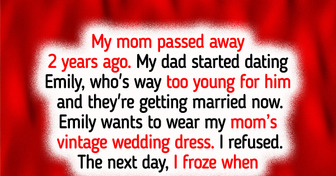
I Refused to Hand Over My Seat, Suddenly Everyone Questioned My Manhood
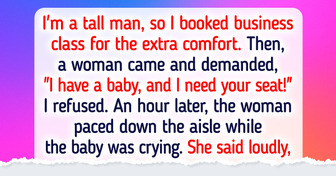
My MIL Demanded Rent for a House That Isn’t Hers, I Turned the Tables

15 Moments That Prove Kindness and Mercy Are Quietly Saving the World
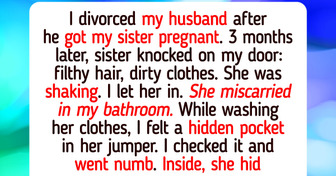
I Charged My MIL for Christmas Dinner, Even Though She’s Always Helped Us for Free
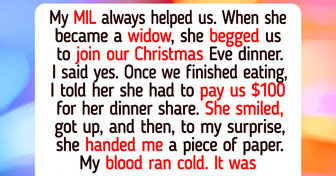
16 Tiny Acts From Strangers That Left Permanent Marks on People
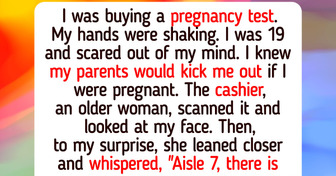
My Manager Tried to Destroy My Career but a Work Argument Showed Them the Truth
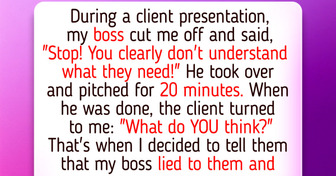
10 Moments That Show Kindness Doing the Heavy Lifting
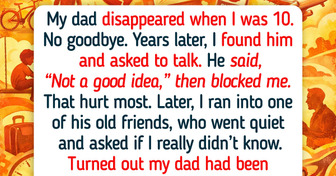
I Refuse to Name My Baby After My Mother-in-Law, She Crossed a Line
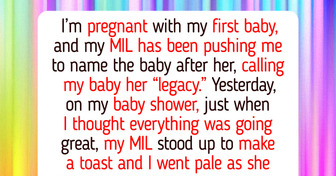
My MIL Humiliated Me in Front of Family, So I Exposed Her Secret
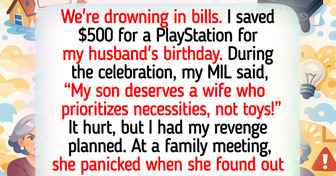
I Refuse to Sacrifice My Retirement to Help My Unemployed Son, I’m Not His ATM
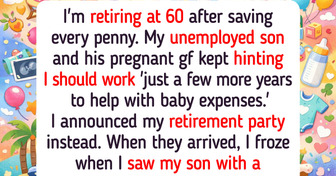
My Parents Mocked Me for Being Childfree—Now They’re Living the Irony
